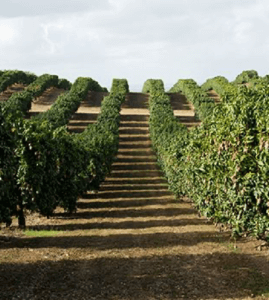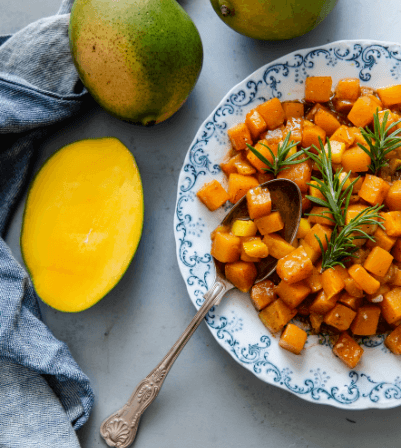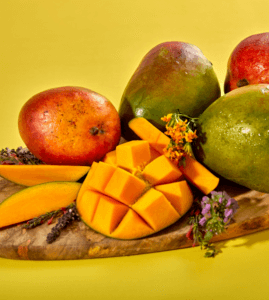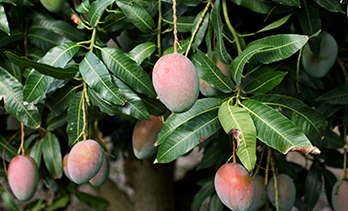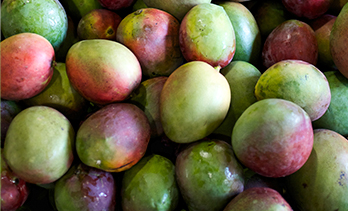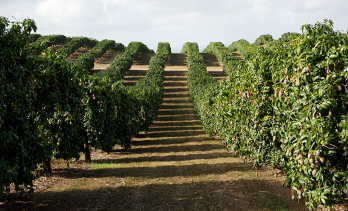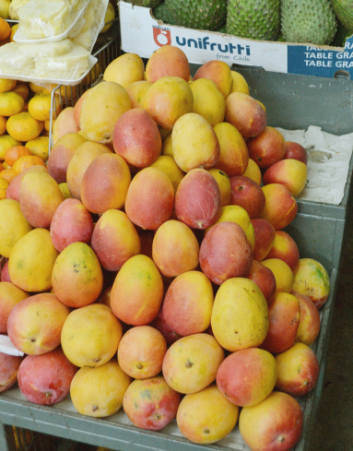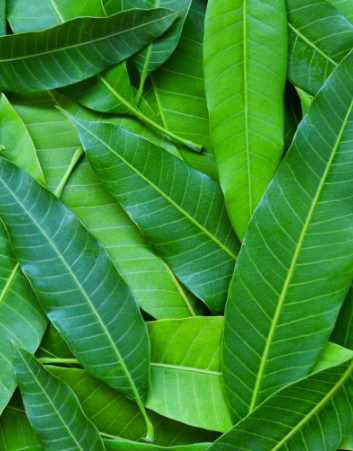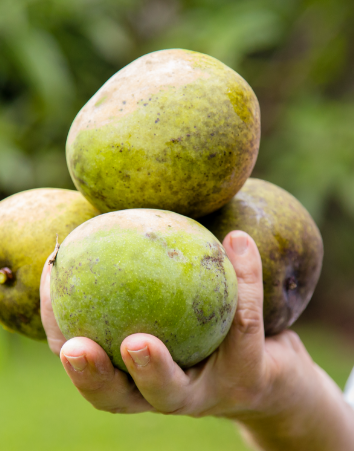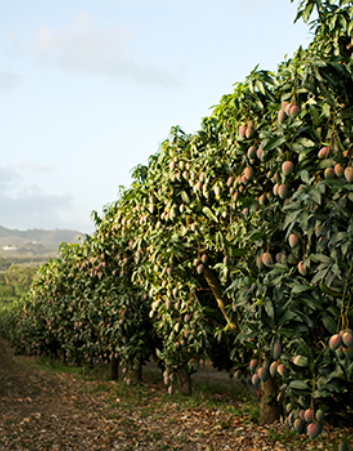Mango Food Safety

Foreign Supplier Verification Programs (FSVP) Webinar
The NMB hosted a free webinar to share with the industry an overview of the requirements of the Foreign Supplier Verification Programs (FSVP) for importers of Food for humans and animals regulation of the U.S. Food and Drug Administration. This rule is one of the seven primary rules included with the Food Safety Modernization Act (FSMA). The NMB enlisted food safety expert Dr. Sergio Nieto-Montenegro from Food Safety Consulting and Training Solutions, LLC to facilitate the webinar and hold a question and answer session following the presentation.
FSMA Webinar Part I
The NMB hosted a free webinar to share with the industry key provisions of the new FSMA regulation and practical strategies and tips that will help businesses comply with the new changes. The NMB enlisted food safety expert Dr. Sergio Nieto-Montenegro from Food Safety Consulting and Training Solutions, LLC to facilitate the webinar and hold a question and answer session following the presentation.
FSMA Webinar Part II
The NMB hosted part II of a series of free webinars to learn more about the Produce Safety Rule, which is part of the FDA’s Food Safety Modernization Act. This rule establishes science-based enforceable food safety standards for the safe growing, harvesting, packing, and holding of fruits and vegetables grown for consumption. Part II of this free webinar series was presented only in Spanish.
Food Safety Training Kit
In continuing efforts to provide the U.S. consumer with a delicious, nutritious and safe product, we have developed in conjunction with food safety expert Dr. Sergio Nieto-Montenegro of Food Safety Consulting & Training Solutions, LLC a Food Safety Training Kit. This Kit shares food safety training materials recommended for mango growing farms and packinghouses in the top six exporting countries, and mango warehouses and distribution centers in the U.S. This training kit is available in English, Spanish, Portuguese and Creole.
Providing high quality mangos that consumers will purchase again and again requires a commitment to safety and quality by each and every member of the mango industry. The NMB is providing these training tools as a service to the mango industry. The NMB does not have the authority to enforce good agricultural practices.
More About Food Safety
The landscape is changing for producers and suppliers of fruits and vegetables. Food safety has become a major issue and many different commodities have been impacted by food safety crises. When products are recalled, and especially when consumers get sick from eating fresh produce, the entire industry feels the pain.
It’s not yet known exactly how the new Food Safety Modernization Act (FSMA) will be implemented and how it will impact growers and suppliers who provide mangos to U.S. consumers. However, the U.S. Department of Food and Drugs (FDA) have made key information concerning the FSMA available in several languages for easy access by manufacturers, retailers, consumers, and regulators in the international community. The documents located on their website are available in English, Spanish Portuguese, French and several other foreign languages. FDA offers these translations as a service to a broad international audience. The NMB hopes you find these translations useful.
The Produce Marketing Association (PMA) has also pulled together a solid set of resources regarding FSMA. PMA also held two free webinars with Dr. Bob Whitaker, Chief Science & Technology Officer of PMA, to help you understand the provisions of FDA's recently released proposed produce safety and preventive controls rules. If you missed it or you participated in the sessions and want a copy of Dr. Whitaker's presentation, it is available on their website. PMA hosted two additional free webinars with FDA about FSMA and Preventive Controls. PMA has also published summaries of each of these proposals, available in their FSMA resource center.
United Fresh is another great resource to get informed about FSMA as they provided details during two webinars. The first webinar featured speakers, Dr. James Gorny, Senior Advisor, Office of Food Safety, FDA CFSAN and David Durkin, Legal Counsel, OFW Law. The second webinar featured speakers Dr. Samir Assar, Director, Produce Safety Staff, FDA CFSAN, Dr. James Gorny, Senior Advisor, Office of Food Safety, FDA CFSAN and Dr. David Gombas, Senior Vice President, Food Safety and Technology, United Fresh. Join expert presenters to learn more on the content of the proposed rule, what implications may exist, and how this proposed rule impacts you and your company.
Meanwhile, the USDA’s final rule for mandatory country of origin labeling (COOL) went into effect in March 2009. This rule requires retailers to notify their customers of the country of origin of covered commodities (including fresh produce), meaning retailers will require their suppliers to support this communication effort through accurate labeling.
U.S. Government Working Session
The NMB hosted a U.S. Government Working Session on September 18, 2014 at the Embassy Suites at Chevy Chase Pavilion, Washington, DC. The session focused on providing attendees with information on border crossings and tools available for the industry to use. The information provided insight to both mango producers and importers that is vital for smooth mango delivery to consumers.
Issues And Crisis Response Guide
Additionally, the National Mango Board has created a comprehensive Issues and Crisis Response Guide that outlines the process we will follow in response to a developing crisis or issue. The plan is intended to help the mango industry respond to a crisis in the most efficient and effective manner in order to protect consumer health. The plan includes industry resources as well as credible third-party information to aid the mango industry in its response. This guide can also be a great foundation for creating your own issues and crisis response guide for your company. Please be patient as the document is large and may take several minutes to open, depending on your connection speed.
The NMB also put together a list of resources for the mango industry to utilize in case of a recall. This list provides information on what to expect from health agencies and what resources are available to assist your company if you execute a recall.
Links
- Guide to Minimize Microbial Food Safety Hazards for Fresh Fruits and Vegetables
- Current Good Manufacturing Practice in Manufacturing, Packing, or Holding Human Food
- Labeling and Nutrition - Food Labeling and Nutrition Overview
- Fresh Produce Audit Verification Program
- Your Getaway to Federal Food Safety Information
- Vegetable Research and Info Center
- Chapter 10. Food Safety for Fresh Produce
- GAPsNET: National Good Agricultural Practices Network for Education and Training
- Food Safety Begins on the Farm: A Growers Guide to Good Agricultural Practices for Fresh Fruit and Vegetables
- Good Agricultural Practices (GAP)- University of Florida
- EDIS Postharvest and Handling Subtopics and Publications
- PEW:Produce Safety Project
- Good Agricultural Practices (GAP) - University of Kentucky
- Kentuky Good Agricultural Practices (GAP) Program (Kentucky Department of Agriculture)
- Food Safety Resource Center
- Primus Lab
- GLOBALGAP
- PMA Food Safety Resource Center - Education
- United Fresh - Produce Traceability Initiative


